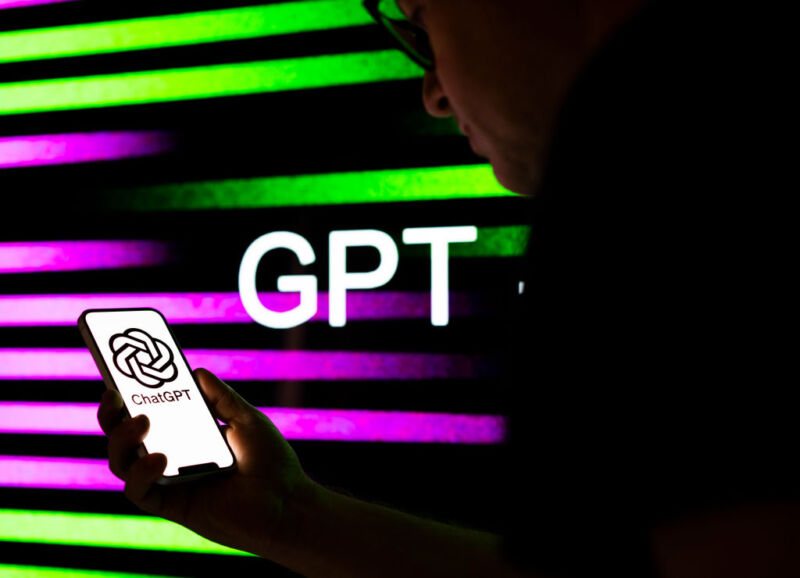NurPhoto / Contributor | NurPhoto
Becoming a jumbled mess comes to mind as Chat GPT In other words, life finds a way. Malcolm elaborates on his point in The Lost World: “These creatures require our absence to survive, not our help. And if we could only step aside and trust in nature, life will find a way.”
VIDEO ChatGPT users drop for the first time as people turn to uncensored chatbots
OpenAI's immensely popular ChatGPT has started losing users for the first time, The Washington Post reported today.
According to data firm Similarweb, ChatGPT's mobile and desktop traffic worldwide decreased by nearly 10 percent from May to June. Another data firm, Sensor Tower, reported that ChatGPT's iPhone app downloads have been steadily dipping since they peaked in early June.
Earlier this year, ChatGPT set a record for attracting the fastest-growing user base in history. Many tech companies —most prominently Google— immediately sought to replicate ChatGPT's success, but Ars noted at that time that technology adoption rates have generally quickened over the past few decades. ChatGPT's success may have been less about broad interest in chatbots and more about its novelty, which may now be wearing off.
Users frustrated by ChatGPT guardrails
There's no denying that regulatory pressure on chatbot makers like OpenAI and Google has increased, with lawmakers globally cautioning AI companies to do more to curb the harm of new technologies. Because of that pressure, AI tools like ChatGPT now have guardrails in place that limit chatbots from responding to prompts with problematic content like misinformation, harmful instructions, biased viewpoints, or hateful content.
These guardrails could be blocking chatbots from providing legitimate responses, a New York Times report this week suggested, and, thus, sending frustrated users away from Big Tech tools like ChatGPT and toward open source, uncensored chatbots that are increasingly becoming available online.
According to the Times, there are now dozens of uncensored chatbots, which are often developed cheaply by independent programmers and volunteers who rarely build their models "from the ground up." These uncensored chatbots may have limitations, but they often engage with prompts that ChatGPT won't respond to.
And there are other user perks. Uncensored chatbots can be customized to espouse a user's particular viewpoints. Perhaps the biggest draw for some users: The data that these chatbots collect obviously isn't monitored by Big Tech companies.
Finding a needle in a haystack regarding truth applies as who can you trust in an age where data is increasingly being generated by AI's of all types. As stated in a BRT blurb, it's not just one AI
Addendum: Truth but verify.



No comments:
Post a Comment